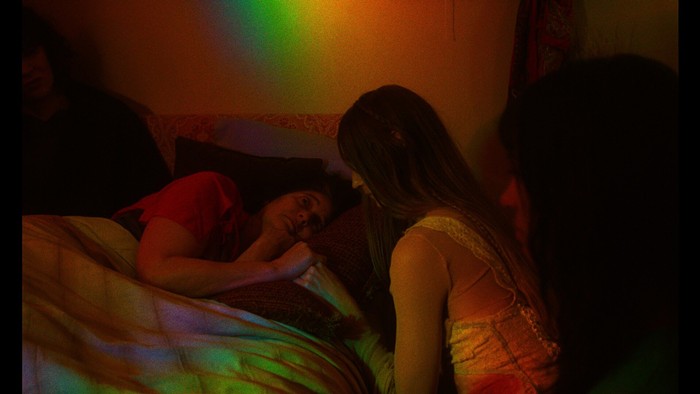
I want to begin by asserting this fact: You do not live in a simulation. You live in the world impressively explained by the Standard Model of particle physics, the theory of general relativity, Newtonian mechanics, and quantum mechanics. There really is a there out there and in wherever you are. To believe otherwise is sadly a consequence of two things, which can be attributed to a bad education: You have confused capitalist realism (a cultural construction) with the real thing and you have not read Spinoza, the antidote to much of the Cartesianism that is packaged, and repackaged, and re-repackaged for mass consumption. You think you know Jesus seriously? No, you don't. You mostly see the world through the concepts designed by a 17th-century French freak/philosopher called René Descartes.
And so A Glitch in the Matrix. Where to begin with this documentary by the articulate filmmaker Rodney Ascher? Maybe with the movie The Matrix, an icon of '90s sci-fi cinema? Maybe with Emily Pothast, a former Seattle resident who contributed art criticism to The Stranger and, in the Glitch, admirably explains the myth of Plato's cave? Maybe with Elon Musk, one of the greatest nutters that Pretoria has ever produced (and that is no small feat)? Musk is just one hot mess. In the Glitch, and on TV, and the web, he goes on and on about colonizing Mars and the unreality of reality and what have you. It's like giving your ear to a Boer and billionaire who happens to be next to you in a shebeen. It's 3 am. The oke just wont stop. You can't make him stop. You lip-hit-hard that Castle while he's chewing your ear like a howler with a rubber bone.
That said, I think we should look at just one of these three contributions to the documentary, which is weaved into a whole by a rather boring lecture the American science fiction writer Philip K. Dick delivered in 1977 in Metz, France. Because there is almost nothing of interest in this lecture, this review will pass it in silence.
At the core of Glitch is an all-American tragedy connected to The Matrix, which was released in the last year of the 20th century and is about a bunch of machines who create a virtual reality program for their primary source of energy, human bodies (the sky is scorched or something like that). If you wake up from this VR program, which is supposed to keep humans calm enough to be stably productive, you end up in the "desert of the real," which has no steak or cool clobber. (Digression: The VR program that keeps most sleeping humans happy does not simulate a classless Utopia but what the celebrated French economist calls a "proprietary society" that has the exact same inequalities that plague the real world beyond the silver screen, our world [if you are wondering], and often results in revolts by the poor and oppressed—an examination of this point will bring the whole marvelous, spectacular, cinematic edifice of The Matrix crashing down.)
What the Glitch examines, but somehow fails to flesh out (in that pun hovers the phantom of Maurice Merleau-Ponty), which is why the doc is disappointing but still worth watching, is an issue that is much more related to gun control rather than dangers of virtual reality or the possibility that humans live in a simulation. It is an important story, but its substance is not found in the ravings of Musk, or Pothast's explanation of the spectacle under pre-capitalist conditions (Plato's cave), but simply in the unjustified social power of the NRA and GOP.
You can watch the second screening of A Glitch in The Matrix on Monday, February 1.



















